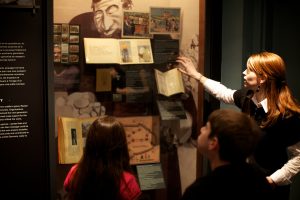Every year, on May 9, I used to call the surviving Soviet Second World War veterans I knew, and wish them “happy Victory Day”. While working on my books, I interviewed hundreds of veterans, and I stayed in touch with many of them. During these calls I often learned about successes of their grandchildren, their views on contemporary politics, as well as a dose of gossip and drama about the inner-workings within Soviet veterans’ organizations in United States, Canada, Germany and Russia. Above all, my interlocutors used to complain how so few people, including their own family members, want to know anything about their past, including their role in ending the Holocaust.
“Why does no one care?”, so many veterans asked me.
It broke my heart to hear this again and again. My advice was always the same: “Write things down, someone will eventually read it.”
One remarkable man, Alexander “Alex” Levin tried to fight this indifference. A former child survivor and a partisan from the Polish town of Rokitno, he immigrated to Canada in 1975 and spent the last 15 years of his life educating Canadian children and the general public about the Holocaust and Jews in the Red Army, right until he died in 2016 at the age of 83. He wrote a book of memoirs, published by the Azrieli foundation, he spoke on Skype with high school students from Waterloo,Ont. Vancouver and Halifax; he organized lavish celebrations of May 9 in fancy Russian restaurants in the north of Toronto.
Levin reached out to virtually every Jewish organization he could think of. His phone calls were often not returned, he himself was ignored, maybe some though he was a nag, but Levin was not deterred. He lived through fascism, through the loss of his family, and through immigration. He was not going to be stopped by indifference. Instead, he persevered and made sure that “everyone knew his name,” and eventually did something about it.
Levin encouraged other Soviet Jewish veterans to speak in schools and community centres. He took it for granted that children and grandchildren of the veterans did not care about the past. He worried even more so, that veterans did not get proper recognition, or even basic attention, in the present.
READ: DOCUMENTARY FRAMES OLD STEREOTYPES INTO A FANCY PACKAGE
I remember attending Levin’s funeral in 2016. The large room at the Benjamin’s Park Memorial Chapel was filled. Attendees were eager to break protocol and to speak about how Levin changed their lives, how he turned them from retirees into fighters and educators.
After the ceremony, many people inquired whether there had been a bus to go to the cemetery. The bus was not there. Normally, it would have been Levin who would organize such a bus.
Levin believed that the recognition of Soviet veterans should come through public events, such as parades on important squares, speeches by “real” politicians (this is how he referred to Canadian-born ones). Little did he know, that in 2018, Toronto will host not one, but two such parades, in Nathan Phillips Square and in Earl Bales Park. They will be large-scale, complete with ethnic food festivals, open-air concerts, and photo ops with young men and women dressed in Red Army uniforms. But there are virtually no veterans.
Their photographs are carried around by family members, their stories, the ones that they were so eager to tell (but no one wanted to listen to) are now shared and savoured, their persistence and good spirit are remembered.
In the Soviet Union, they used to call the 9th of May, “The holiday with tears in the eyes.” They were referring to the millions that were killed in the war. Today, it feels somewhat tragic, because the celebration comes too late for people for whom it truly mattered. I keep thinking how bewildered many those veterans would be if they were still alive at the sight of rabbis and priests giving speeches at such events, given that the majority of veterans were atheists. But remembering, no matter how late, is still better than forgetting. I too will try and go see the parade at Earl Bales Park, because I want to honour the heroes who saved the world from fascism that I can no longer call on the phone.
Author

Anna Shternshis is the Al and Malka Green professor of Yiddish Studies and director of Anne Tanenbaum Centre for Jewish Studies, University of Toronto.
View all posts






